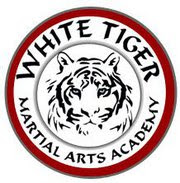]SHINDEN FUDO RYU
Shinden Fudo Ryu has two sub disciplines - Daken and JuTai
Not every student at the school learnt both systems
Shinden fudo ryu was known for its use of nature as an ally. The techniques are often casual looking. It has many body conditioning methods using items found in nature.
SHINDEN FUDO founder was IZUMO who was it's first Soke. He originally studied Chinese Kempo and some of those techniques can still be seen in this Ryu.
IZUMO was also Soke of Kukishinden Ryu.
The second Soke, MINAMOTO, is credited as being the official founder. At some point in his life he fled to Iga Mountain region. This was a result of being on the losing side at the end of a battle.
Takenaka Tetsunoke, senior student of Jigano Kano, the founder of Judo, was at one time a student at the Shinden Fudo Ryu dojo.
Toda Shinryuken Masamitsu, the 24th soke, was a samurai, and a master in the Bikenshin Ryu. He was also a sword instructor to the Tokugawa Shogunate. He was Takamatsu Sensei's grandfather.
DAKENTAIJUTSU
Dakentaijutsu has throws, strikes, locks, and kicks done in a direct and straightforward manner. It uses the body as a striking weapon and appears "hard" in application.
There are no formal postures in the DAKEN system, the Kamae are held in your heart. Most of the techniques start from the natural postures: shizen and fudoza.
SHINDEN FUDO RYU - "divine transmission of immovability"
DAKEN TAI JUTSU - "hard weapon body art"
JUTAIJUTSU
Shinden Fudō Ryū Jūtaijutsu, 神傳不動流柔体術, is the part of Shinden Fudo Ryu that specializes in grappling and Joint locks.
JU TAI JUTSU - Soft Body Art
KAMAE
Fudo Za - Seated
Shizentai - Natural Posture
Seigan
Ichimonji
Hira Ichimonji
At the TODA Dojo where Takamatsu studied, Shinden Fudo was the first system learnt, even though it is the most intricate
Dakentaijutsu, the Striking system, can be separated into two sub systems:
KOSHI Jutsu - nerve and muscle striking
KOPPO Jutsu - bone breaking
So GYOKKO Ryu and KOTO Ryu respectively, when learnt next, fitted into the pattern of DakenTaiJutsu
As all three have their roots in Chinese Kempo, the other related arts fit into the pattern:
Chinese KEMPO
Okinawa KEMPO
Japanese KARATE - the various Schools and Styles - Shotokan, Shoto Kai, Kyukushin, Goju, etc
Ju Tai Jutsu was the original name for Ju Jutsu
NAGE Throws
OSAE Pins
GYAKU Locks
SHIME Chokes
Subsequent Arts and Schools fit into the pattern
JUJUTSU - various schools
KITO Ryu - KANO main source for NAGE
TENJIN SHINYO Ryu - KANO source for OSAE and SHIME
JUDO - Kodokan
KOSEN JUDO - focus on Newaza
AIKIJUTSU - Daito Ryu
AIKIDO
TOMIKI Aikido
GRACIE Jiujitsu
Just as fighters over the years study different schools, arts and styles to have a complete system, and the modern attempt to "mix" martial arts together these schools had original ways to understand and practice the differences, and then properly integrate the skills
KARATE and JUDO
BOXING/KICKBOXING and WRESTLING
MUAY THAI and JIU JITSU
In the NINJA Ryuha, TAGAKI YOSHIN RYU is a specialised JUTAIJUTSU style of Grappling
Just as the GYOKKO RYU an the KOTO Ryu pattern in with the Shinden Fudo DAKENTAIJUTSU, the Takagi Yoshin patterns in with it's JuTaiJutsu
This has been written about separately and will be studied in depth at a later date
